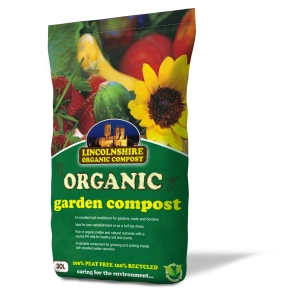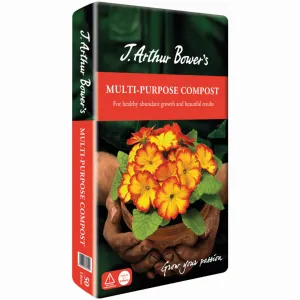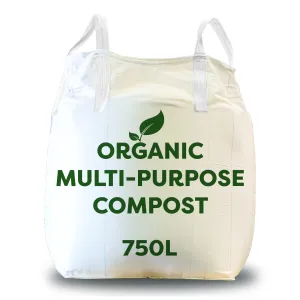In a heatwave, mulch really benefits plants in pots, beds, and borders. These benefits stem from soil temperature regulation and moisture provision, to weed suppression and improved soil health.
Here’s why you should always mulch soil leading up to and during heatwaves and hose pipe bans:
Moisture Retention
Mulch acts as a physical barrier, significantly reducing the evaporation of water from the soil surface.
This is especially crucial in hot, dry conditions when plants require additional water to prevent heat stress or plant death.
Studies have shown substantial water savings by using mulch in borders. For instance, research by the University of California demonstrated that mulched soils can retain up to 50% more moisture than un-mulched soils.
The Colorado State University Extension notes that a 3-4 inch layer of mulch can reduce water evaporation by 25-50%, while other sources indicate that mulching can reduce evaporation by up to 70%.
The key is to get mulch on the ground before the very hot weather strikes. So, if you see a heatwave is due in your area, water your pots, beds and borders and then apply a thick layer of mulch. This will help keep that moisture in the ground and prevent your plants suffering the worse effects of the heat.
The key benefits of using mulch in hot weather include:
Temperature Regulation
Mulch insulates the soil, keeping it cooler in hot weather and warmer in cold weather. In hot conditions, it prevents the sun's rays from directly heating the soil, which can stress plant roots.
This moderation of soil temperature leads to a more stable environment for root growth and nutrient uptake meaning your plants stay healthier in heatwaves.
Efficient Water Use
With less water lost to evaporation, plants have more available water for transpiration and metabolic processes, even during periods of low rainfall or infrequent irrigation. This maximises the efficiency of water use and saves you considerable money on fresh water.
Enhanced Nutrient Availability
Stable soil temperatures and moisture levels, coupled with the slow release of nutrients from decomposing organic mulches, ensure that plants have a consistent supply of essential nutrients for growth.
Reduced Plant Stress
By maintaining consistent soil moisture and temperature, mulch significantly reduces the heat and drought stress on plants. This leads to healthier, more vigorous growth and increased resilience to adverse conditions.
Prevention of Scalding and Sunburn
In pots, where soil temperatures can fluctuate dramatically, mulch protects shallow roots from scalding by direct sunlight. For plants in beds and borders, it can prevent the rapid drying out of the surface soil that can lead to root damage.
Weed Suppression
Many weeds out compete plants in a heat wave, especially those with longer roots. This means they can thrive in heatwaves and access more water than your plants.
By blocking sunlight, mulch inhibits the germination and growth of weeds. This reduces competition for water, nutrients, and light, allowing the desired plants to thrive.
Fewer weeds also mean less need for herbicides or manual weeding, saving time and effort, and mulch has great visual appeal too.
Improved Soil Structure and Fertility (Organic Mulches)
Organic mulches (e.g., wood chips, bark, compost) decompose over time, adding organic matter to the soil.
This decomposition process enhances soil structure, improves drainage in heavy soils, and increases water retention in sandy soils. It also provides a slow release of nutrients, enriching the soil and supporting beneficial microbial activity.
Reduced Soil Compaction
Mulch acts as a cushion, protecting the soil from compaction caused by footfall, and by a lack of rain. This maintains good soil aeration, which is essential for root respiration and overall plant health.
In summary, using mulch is a highly effective and scientifically supported practice that provides a multitude of technical benefits for plant health and soil sustainability, particularly in the challenging conditions of hot, dry weather.








